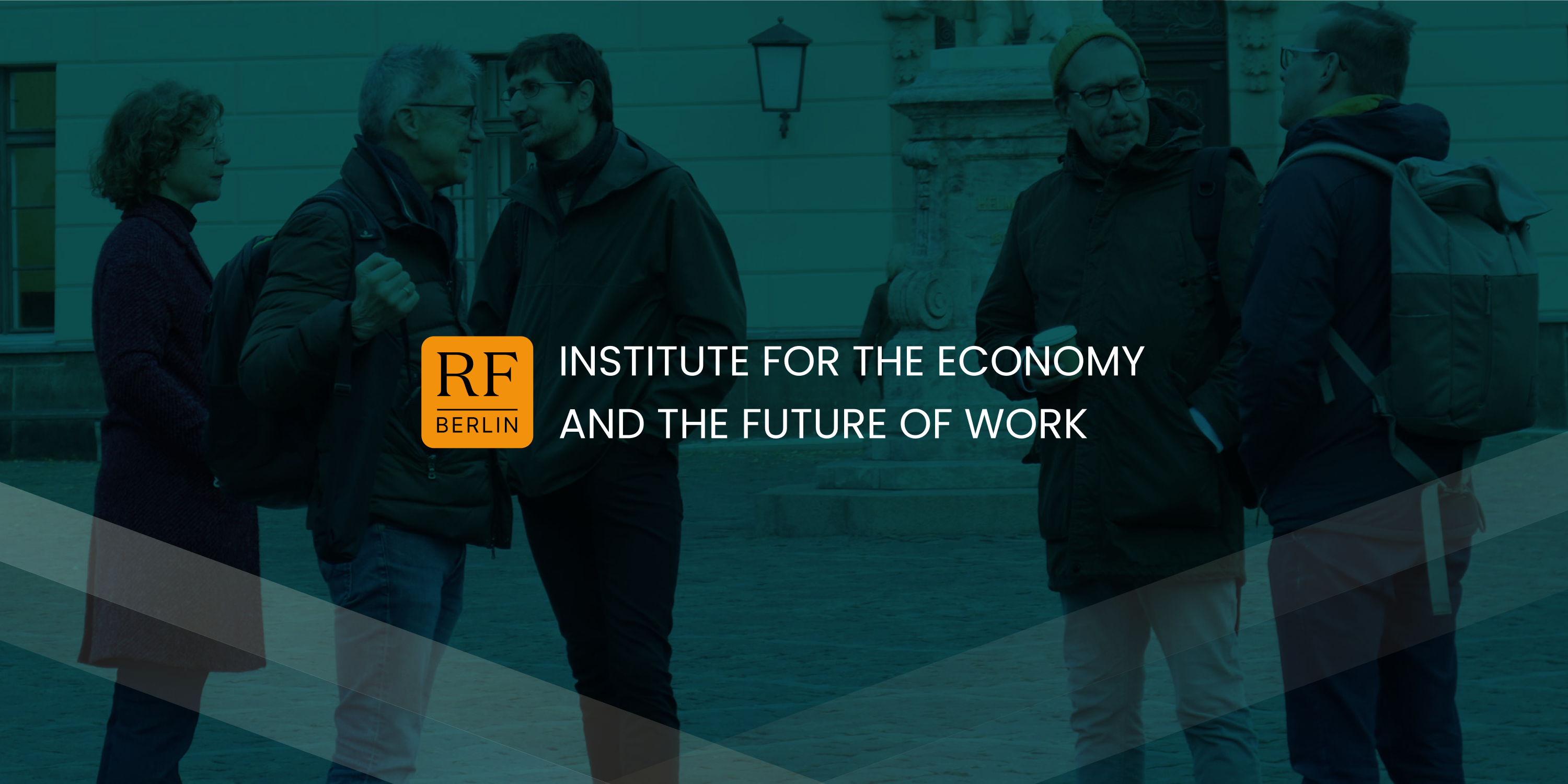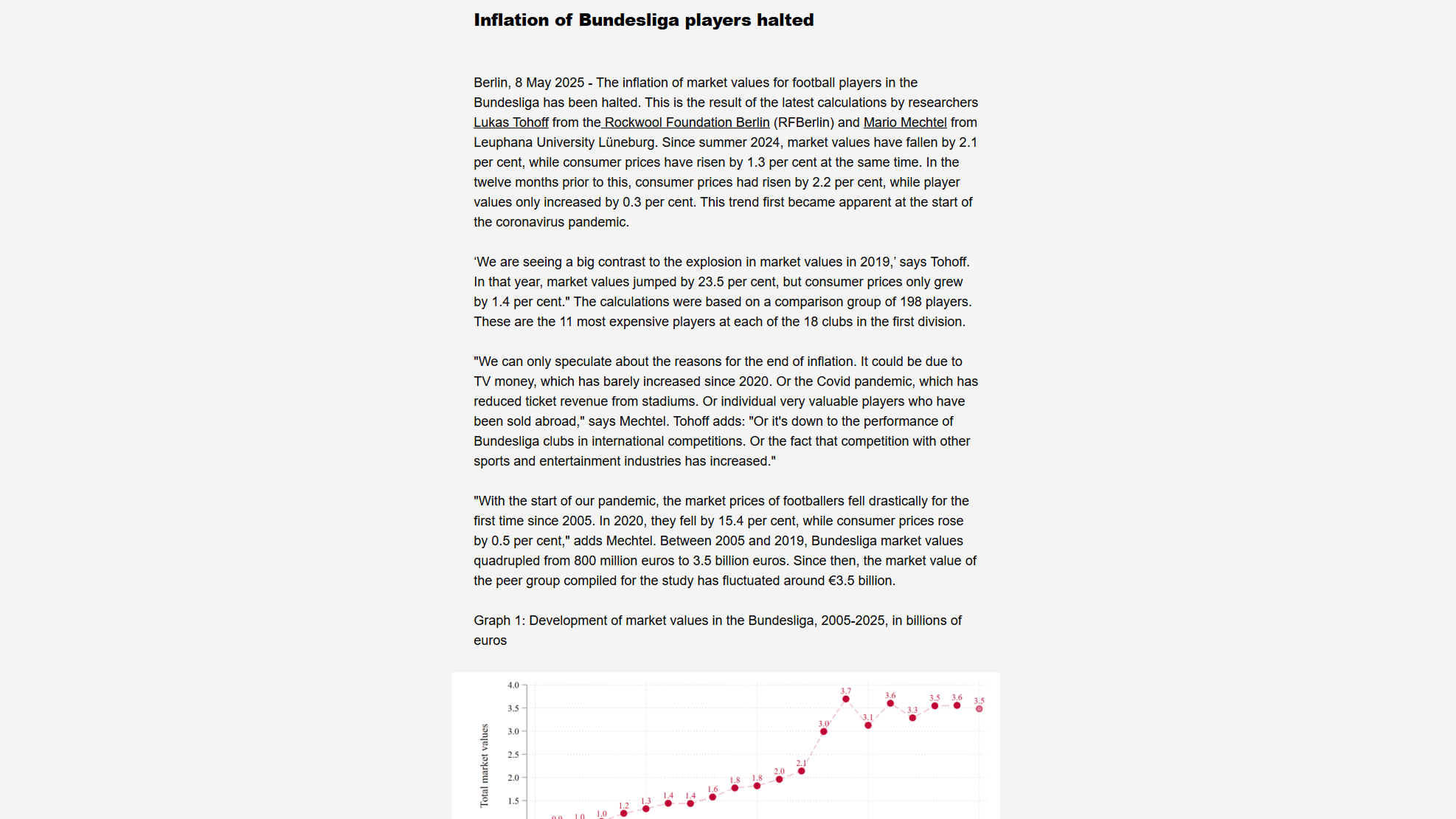This is the English translation of the original articled titled “The German car industry will no longer exist in 20 to 30 years” (in German) on the Frankfurter Allgemeine by Dietrich Creutzburg and Johannes Pennekamp.
Mr. Dustmann, the whole world is talking about ChatGPT right now and how this artificial intelligence can relieve humans of many tasks. Will this innovation soon solve our skilled labour shortage problem?
It can solve many problems, but this particular one is rather not. Because despite all the impressive progress it has made, this technology still has a long way to go before it can do what people do in well-organized work processes—especially since it cannot replace their creativity, which essentially comes from team building and interaction in the workplace. Artificial intelligence can process and link huge amounts of information. But so far it has not come close to the ability of humans to assess and decide things.
But human work does not consist solely of creative processes. Can’t AI at least take over many routine tasks?
Of course, it can automate a lot of what people have been doing up to now. But the result is more likely to be that tasks change and often become more demanding. There is little to suggest that this will reduce the overall demand for human labour. When the first computers entered the workplace 30 or 40 years ago, they were considered a major threat to many jobs—from today’s perspective, an unfounded concern.
However, this can lead to insecurity or job loss for individual employees.
Without question. The challenges in the workplace have become greater, and at the same time the dynamics of change are also increasing. However, in a dynamic economy, the opportunities for affected workers to find new areas and tasks that match their skills are also growing.
Isn’t that a rather little consolation for the individuals affected?
I certainly don’t want to minimise this. But closer analyses show that this process, at least in Germany, very often takes place without job losses: Most of the change occurs within companies and thus with surprisingly little friction—i.e., not through mass layoffs and large-scale personnel exchanges, as is often assumed. Firms introduce new technologies, and change their production processes—but their employees stay with them, adapt to the changed requirements through training and continuing education, and often even benefit through higher wages.
So it’s mainly about qualification. If this is how change happens, what can, or should politics do to promote it?
Germany is in the favourable position of having always had a highly effective and globally unique education model: its system of vocational training, which runs according to recognised curricula and at the same time is very closely linked to companies. This model is basically existential to the innovative strength of the German economy.
What makes it so special?
This system alone continuously prepares more than half of each age cohort for the labour market immediately after leaving school. It is decentralised and orients itself on the needs of the labour market: The regional firms offer training positions primarily in occupations where they are also looking for workers. This is why the transition to employment works better than in countries with academically based vocational training, such as the USA, where young people first go to college after high school and enter the job market later. Germany has, so to speak, thousands of small colleges in urban and rural areas, which combine practice and theory in the interplay between companies and vocational schools in a unique way. And in this way, the different potentials of differently gifted people are well promoted and utilised.
So, politics does not have to do much to promote qualification?
It should definitely ensure that vocational schools are well-equipped and technically up-to-date. And, of course, this also applies to the entire infrastructure, where all the technological change is taking place. If new business models for companies fail because of a lack of broadband connections, then even the best qualification policy will come to nothing. And ultimately, it is also important to increase the appreciation of dual training, especially compared to university education.
In addition to vocational training, the issue is further education for employees affected by technological change in the middle of their working lives. One controversial question is: Who should organise and pay for this?
First and foremost, this should be the responsibility of the firms. After all, this is happening successfully everywhere where so-called internal transformation is succeeding. Let’s take the carpenter’s workshop: 40 years ago, every piece was still handmade. Now there are computer-controlled milling and planning machines. And who is supposed to operate them? Of course, the best way to do this is for the company to train its existing skilled workers, because they are familiar with the production process and all the requirements. This does not have to be enforced by law, and in such constellations, there is little to be said for supporting this with state subsidies.
Why?
As a rule, firms know best what kind of training and how much training is needed to match the specific changes in their production processes and business models. And if the reorganisation, including the training, is in the direct interest of the company, if it will pay off in the foreseeable future, there is no need for subsidies.
But there is criticism that companies systematically provide too little training for their employees. Is that true?
Of course, it depends on which yardstick is used to measure “a lot or a little”: In individual cases, a particular training program may be advantageous for the employee and his or her chances in the labour market. But the firm will only want to finance it if there is a concrete, foreseeable benefit for it, which is of course a key efficiency criterion in economic terms.
Labour Minister Hubertus Heil is planning a subsidised training period: employees are to take up to a year off to gain qualifications, while the state finances their living expenses. Is that a good idea?
Anything that increases employees’ flexibility and makes them fit for new job profiles is a good idea. This is not only beneficial for them, but also for the economy as a whole. However, this specific model could become a problem if employees opt out of further training due to public funding, even though their company urgently needs them because of the shortage of skilled workers.
Who should decide in each individual case whether such subsidised training time should take place—the company, the employee, or the state?
The Arbeitsagentur (federal employment agency) should use its expertise to decide whether public funding should be granted, and it should do so together with the employee and the firm. If the subsidy creates an incentive to engage more intensively in continuing education, that is certainly positive. But it should not relieve companies or employees of all the costs and risks of such investments; otherwise, it misses the point. It is crucial that further qualification is beneficial for both the employee and the company. This must not create an incentive for further training that does not lead to the desired results.
For older employees, however, the situation looks worse: As retirement approaches, companies are less and less willing to invest in continuing education. What can be done?
This is indeed a particular challenge. Experience shows that from around the mid-50s onward, employees also find it increasingly difficult to learn something completely new. Some of this can be offset by increased financial support. At the same time, consideration could be given to how more opportunities could be created for older people. Japan and Singapore could provide some food for thought: They have specific labour markets for older people.
What does that look like?
There, targeted instruments are being created through which older workers can contribute their experience and skills to the labour market, for example through special placement agencies. It is an example of how targeted areas can be created where older people can continue to be productive and do not have to feel sorted out. We can learn from this. And in times of general labour shortages, it benefits all of us to keep older people in the labour market longer, no matter what the job.
What is the most important key to combating the shortage of skilled workers in Germany?
Of course, it’s also about attracting more skilled workers from abroad. And it’s a matter of removing obstacles to higher labour force participation by women; although Germany has already made great progress in this regard. But I think the most important thing is to look carefully into the future and ask ourselves where we want to go.
I beg your pardon?
We—by which I mean business, politics, and academia—need to be clear about where Germany’s strengths lie in an international comparison and how the best opportunities can be derived from them. The education system is undoubtedly one of the strengths, as is the diversity of medium-sized companies; not to mention the export industry. On the other hand, Germany has some catching up regarding digital companies, the data economy, and digital infrastructure. Such an inventory is the starting point for working on the weaknesses and developing a guiding vision of where we should focus our resources politically and economically in the longer term.
What does such an analysis mean for our most important industry, the car industry?
Electric cars can be produced much more easily than cars with combustion engines. Perhaps producers from India or China will soon be able to do this better than German manufacturers. The German auto industry will no longer exist in this form in 20 or 30 years. It will have to change and possibly produce something else in the future—machines or other means of transportation. Of course, this will require new skilled workers with different qualifications.
Germany has already recruited at least one new specialist: You are conducting research in London, but you will now set up a research institute in Berlin with the support of the Danish ROCKWOOL Foundation. What is your goal?
I’m very excited about setting up the institute. We want to position ourselves at the top of the German and European research landscape. Our research work should always be well communicated and conveyed to political actors and the public. From my point of view, it is very important that scientific studies are not only disseminated within the scientific community but that the people who are really affected are also better informed about them.
How much money is available for this?
We want to grow to 40 researchers in the coming years. The budget grows with the needs and tasks and depends on us doing research of the highest quality and relevance.
The Institute for the Future of Work, or IZA for short, also brought in a top German researcher from abroad last year and is pursuing high goals. Do you get in each other’s way?
I see competition in a positive light; it’s always beneficial, whether with IZA or other research institutes in Germany and abroad. It also creates new opportunities for cooperation. And this is certainly a great opportunity for Germany as a centre of science.




